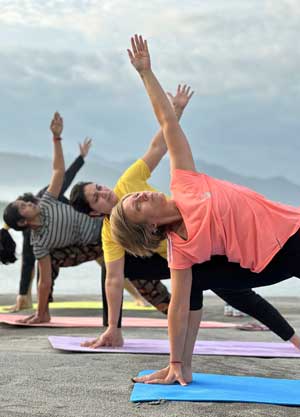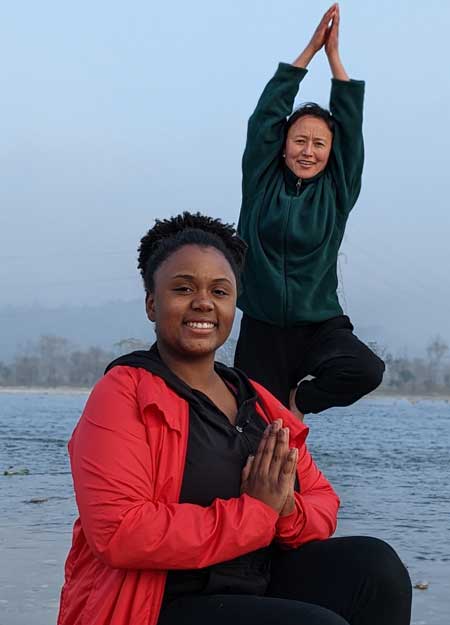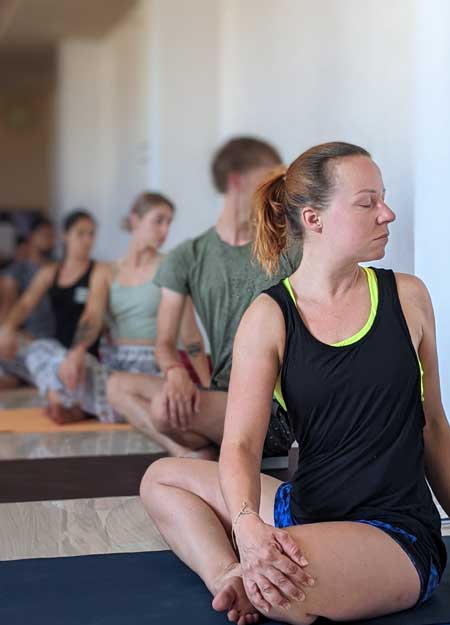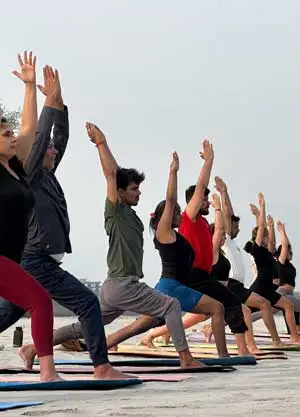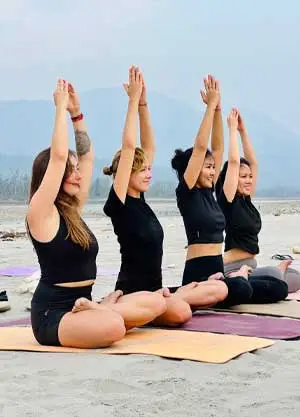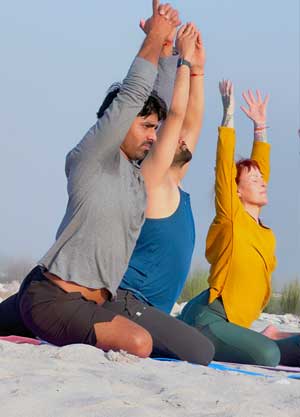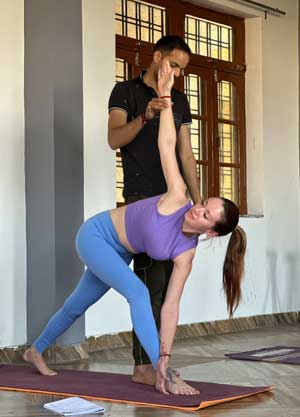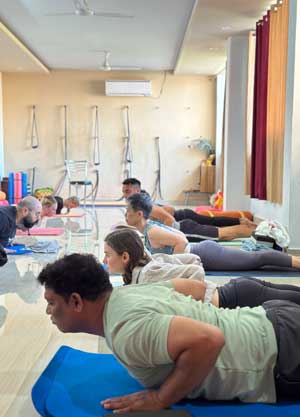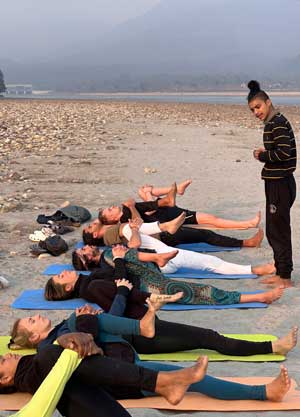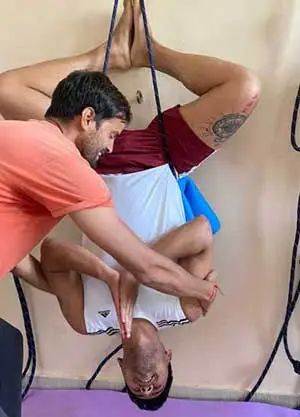Yin Yoga Teacher Training in Rishikesh
You want to become a certified Yin yoga instructor. Arogya Yoga School offers yoga alliance certified Yin Yoga Teacher Training in Rishikesh, India. Yin Yoga is a type of yoga that involves holding postures for extended periods of time compared to other styles. This slow-paced practice integrates principles from traditional Chinese medicine. Beginners can hold an asana for 45 to 2 minutes, while more experienced practitioners can hold an asana for 5 minutes or longer. Hatha yoga uses posture sequences to stimulate the subtle energy channels known as nadis.
Yin yoga teacher certification
Yin Yoga in particular provides physical, mental, emotional, and energetic benefits and, for some, spiritual. Which benefits you enjoy will depend greatly upon your intention when you practice.
Yin Yoga postures apply moderate stress to the connective tissues of the body (tendons, fascia and ligaments) with the aim of increasing circulation in the joints and improving flexibility. A more meditative approach to yoga, its goals are awareness of inner silence and bringing to light a universal and interconnected quality.
2798
Happy Students
820
Awards & Features

what we offer in yin yoga instructor course
yin yoga instructor training in Rishikesh
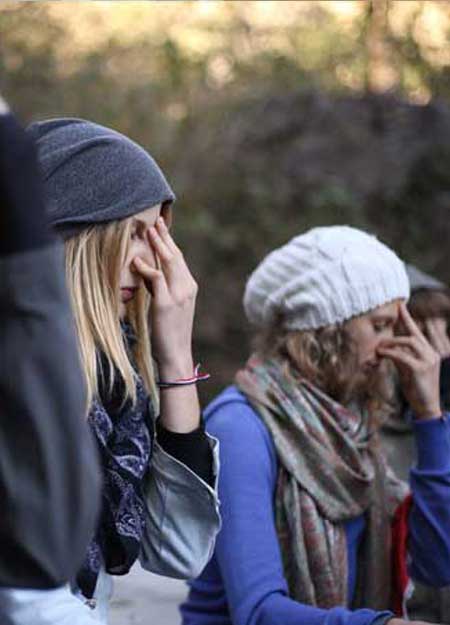
What is yin teacher training
Arogya yin teacher training is yoga alliance certified. Yin Training refers to a specialized yoga training program focused on Yin Yoga, a meditative and passive style of yoga that targets the deep connective tissues, fascia, and joints through long-held poses. These training programs are often part of Yoga Teacher Training (YTT) or continuing education for yoga practitioners.
Have you ever imagined doing some physical practice, moving your body, stretching it out but without getting tired or over exhausting? Yin yoga is exactly that. A way to meet your movement goals but in a relaxed manner.
It is an extremely therapeutic practice where you put your body into deep stretches by placing pressure on connective tissues which in turn promotes flexibility and enhances blood circulation. Postures in yin yoga are held for a longer duration allowing the body and mind to relax and release all the tension. It's a slow movement practice which if done with complete awareness can be very meditative promoting not just increased joint mobility but a profound sense of mental clarity and emotional balance.
If you are not a fan of any physically heavy practice, Yin Yoga is the perfect way of building a deeper connection with your body bringing in some physical movement as well as mindfulness in your life. Dive into this calming practice and experience the transformative power of stillness.
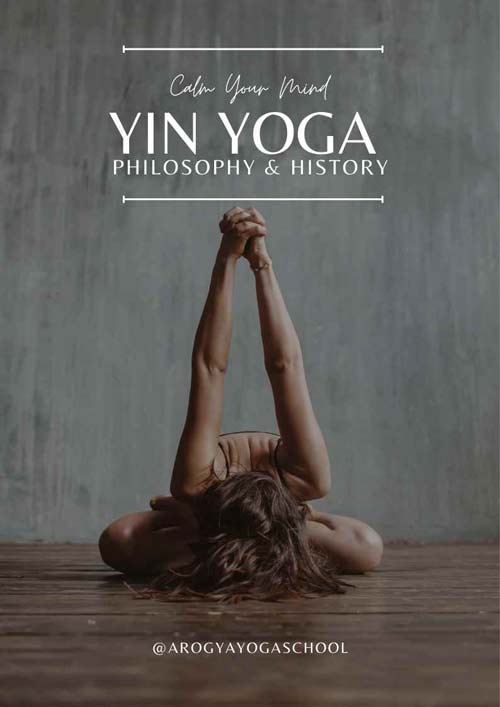
Who is Yin Training For?
People who do yoga and want to deepen their personal journey can benefit greatly from Yin Training. This method improves flexibility, supports joint health, and helps increase self-awareness.
By holding poses for longer periods, practitioners develop mental calmness. This makes Yin Training perfect for those looking to balance their energy with relaxation.
Yoga instructors aiming to enhance their expertise.
Individuals seeking to deepen their personal practice.
Anyone curious about restorative, therapeutic, or meditative yoga.
History philosophy of Yin Yoga
Yin yoga originated in the 1970s, this practice includes elements of both yoga and meditation, it embraces stillness, stretches the body, promotes deep relaxation and releases all the blockages boosting the flow of chi energy in the body. It's not just about moving the body and relaxing but it's an approach towards a profound inner exploration fostering balance and deeper connection with ourselves.
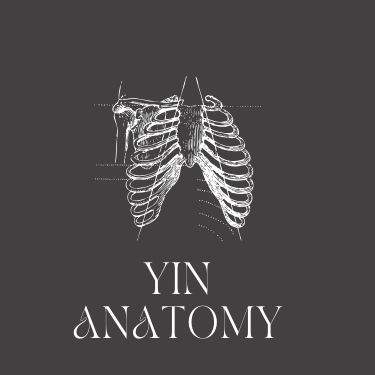
Yin meridians Anatomy
Just like how before practicing any other form of yoga it is important to learn about the internal working of the body. Similarly, before practicing or teaching Yin Yoga it is important to understand how to safely adjust the body into a position
Learning anatomy will help us know how our internal body responds to postures and it will teach us how to respect our bodies while performing. Yin Yoga demands holding of postures for a long time and sinking our bodies into deep stretches that focus on connective tissues (eg- ligaments, fascia etc). Working with the body requires a thorough knowledge of the interplay between joints and muscles.
Moreover, this knowledge will create a solid base to develop mindfulness, enabling us to connect breath with movement and recognize sensations as we hold each pose. This inturn will also help us cultivate a greater grasp of our relationship with our body and mind, build boundaries according to our comfort zone by making us aware of our physical limits and capabilities.

Play with your edge
The first edge is found by gently getting into the shape of a pose and noticing where the body naturally wants to stop. Yielding the natural limitations of the body prevents injury. There should be no pain at the first or any other edge, yet there may be some discomfort. Discomfort without radiating pain is a sign that the connective tissue around the joints is stretching. Reasonable discomfort is a gateway to more flexibility and greater range of motion. Props can add additional comfort and accessibility to yin yoga poses.
Stillness
Sitting still in yin yoga poses lets the contemporary yogi dip their toes into the waters of deep meditation. One exception to stillness is when the body opens to a new edge. With the awareness that the body is ready to deepen, Yin yogis consciously move deeper and return again to stillness and breath. Another exception to stillness is the awareness of pain. In response to pain, it's time to come out of the pose slowly.
Hold for Time
Third principal is to hold the poses for time. Poses can last anywhere from one minute to longer than 15 and in general are done for 5-10 minutes. Using a timer tells you how long you are staying still, which can be a way to gauge stillness from practice to practice.
Yin Yoga Practice
- Deep Release Yin Yoga
- Smooth Awakening Hatha/Yin
- Deep Stillness Yin Yoga
- Mountain Top Yin
- The Yin-Side of Letting Go
- Mini Yin Yoga Practice for the Hips
- Mini Yin Yoga Practice for the Spine
- Twist Your Way to Bliss
- Loving the Wilderness
- Yin Yoga And The Energy Body
- Yin Yoga for the Spine Fall Yin Restorative Practice Yin Yoga for Courage Clear and Stable Yin Yoga Happy Yin Happy Hips
What include in restorative yin yin teacher training ?
- Accommodation
- Daily nutritious vegetarian meals and herbal tea
- Weekend excursions
- Course materials will be provided (Note books, Yoga Mat, Cleansing kit)
yin yoga teacher training india- Principles and Guideline:
- Yoga Class starts from early in the morning.
- Respectful behavior is mandatory at all times on and off the premises.
- Respect the rules and regulations Arogya Yoga School.
- Course fees are non-refundable.
- Before departure from Arogya Yoga School, students must return all books from the library.
- Non veg. food, smoking and drinking alcohol are not allowed on the Arogya Yoga School premises.
Our Plans & Price
Upcoming 85 Hrs Yin Yoga Teacher Training in Rishikesh
Yin Yoga Teacher Training certified With Yoga Alliance, Arogya Yoga School is completely Authorized with Yoga Alliance USA.
Yin yoga teacher training Course Date
Yin yoga teacher training cost
Private Room Occupancy USD 600
x - Double Sharing USD 500
3x - Triple Sharin USD 450
Book now
What is a training timeline
Check in Date: 1st of Month
Certification Ceremony Date:
13Th of Month, Time: 10:00 AM
Check out Date:
13th of Month, or You can Plan Next Day 10:00 AM









